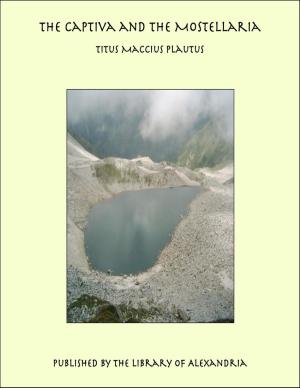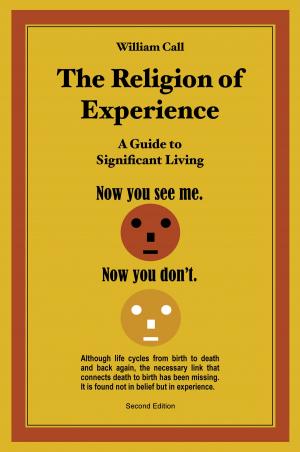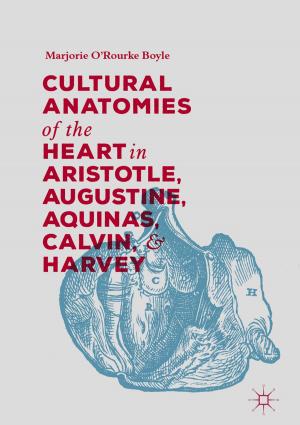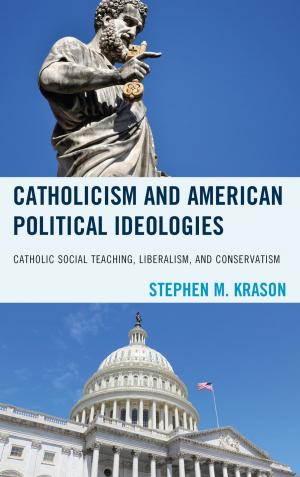The Mind of Christ ...the making of personal holiness... John, Paul and Spinoza
Nonfiction, Religion & Spirituality| Author: | Aldo Di Giovanni | ISBN: | 1230000504928 |
| Publisher: | SkillAction | Publication: | June 21, 2015 |
| Imprint: | Language: | English |
| Author: | Aldo Di Giovanni |
| ISBN: | 1230000504928 |
| Publisher: | SkillAction |
| Publication: | June 21, 2015 |
| Imprint: | |
| Language: | English |
This work has been prepared for young people driven to spiritual matters by life and death urgency. It should be of interest to others who feel that spiritually they do not have enough to be live meaningfully. The New Testament gospel given in the book of John, Paul’s authenticated letters and Spinoza’s works have much to reveal to serious readers about discerning and engaging God, as well as enabling and empowering people who earnestly and deeply pursue personal salvation and holiness.
The central message of the gospel given in the book of John, the authenticated letters of Paul and the work of Spinoza is that what is important about personal existing and living is to personally be in God of and from God. Spinoza closed his last and most important work, the Ethic, by writing:
... the wise man… being conscious by a certain eternal necessity of himself, of God, and of things, never ceases to be, and always enjoys true peace of soul. If the way which, as I have shown, leads hither seems very difficult it can never the less be found… if salvation lay ready to hand and could be discovered, without great labour, how could it possible that that it should be neglected by almost everybody? But all noble things are as difficult as they are rare. (Ethic, Pt5Prop42Sch.)
From his letters, we know Paul did not ‘neglect’ his personal salvation. Through difficult pursuit, he discovered that ‘eternal necessity of himself, of God and of things”. In his letter to the Galatians, Paul writes that he spent 17 mature years in pursuit of discerning personal salvation and holiness. Those 17 years were not taken up with a focus on abstract theology or philosophy. They were radically taken up by God. According to the book of John, in all their lives, including 3 years of 24/7 discipleship, the disciples never once asked for anything in the ‘name of’ Christ (John 16:24). Yet all they had to do (or we have to do) is ask in the ‘name of’ Christ and all that is ultimately significant, meaningful or purposeful is given to us personally. According to Paul’s letter to the Galatians, Paul asked for 17 years… and God was faithful to complete him.
The Way, the Truth and the Light (John 14:6) are not made up of words, of images, or of abstract reasoning. In experience of reality, they are without words, images or abstract reasoning. Existentially experience of following the Way, knowing the Truth and seeing with the Light is not in having sophisticated words, not in having sacred cognitive or emotive images, and notin reasoning from our experiences.
While the way of salvation may be “difficult”, “it nevertheless can be found” and be existentially affirmed by anyone whose person is in God of and from God, to the eternal enjoyment of their “true peace of soul”.
This booklet explicates and addresses the primary core message in the gospel as given in the book of John, in Paul’s authenticated epistles, and in Spinoza’s work.
This work has been prepared for young people driven to spiritual matters by life and death urgency. It should be of interest to others who feel that spiritually they do not have enough to be live meaningfully. The New Testament gospel given in the book of John, Paul’s authenticated letters and Spinoza’s works have much to reveal to serious readers about discerning and engaging God, as well as enabling and empowering people who earnestly and deeply pursue personal salvation and holiness.
The central message of the gospel given in the book of John, the authenticated letters of Paul and the work of Spinoza is that what is important about personal existing and living is to personally be in God of and from God. Spinoza closed his last and most important work, the Ethic, by writing:
... the wise man… being conscious by a certain eternal necessity of himself, of God, and of things, never ceases to be, and always enjoys true peace of soul. If the way which, as I have shown, leads hither seems very difficult it can never the less be found… if salvation lay ready to hand and could be discovered, without great labour, how could it possible that that it should be neglected by almost everybody? But all noble things are as difficult as they are rare. (Ethic, Pt5Prop42Sch.)
From his letters, we know Paul did not ‘neglect’ his personal salvation. Through difficult pursuit, he discovered that ‘eternal necessity of himself, of God and of things”. In his letter to the Galatians, Paul writes that he spent 17 mature years in pursuit of discerning personal salvation and holiness. Those 17 years were not taken up with a focus on abstract theology or philosophy. They were radically taken up by God. According to the book of John, in all their lives, including 3 years of 24/7 discipleship, the disciples never once asked for anything in the ‘name of’ Christ (John 16:24). Yet all they had to do (or we have to do) is ask in the ‘name of’ Christ and all that is ultimately significant, meaningful or purposeful is given to us personally. According to Paul’s letter to the Galatians, Paul asked for 17 years… and God was faithful to complete him.
The Way, the Truth and the Light (John 14:6) are not made up of words, of images, or of abstract reasoning. In experience of reality, they are without words, images or abstract reasoning. Existentially experience of following the Way, knowing the Truth and seeing with the Light is not in having sophisticated words, not in having sacred cognitive or emotive images, and notin reasoning from our experiences.
While the way of salvation may be “difficult”, “it nevertheless can be found” and be existentially affirmed by anyone whose person is in God of and from God, to the eternal enjoyment of their “true peace of soul”.
This booklet explicates and addresses the primary core message in the gospel as given in the book of John, in Paul’s authenticated epistles, and in Spinoza’s work.















